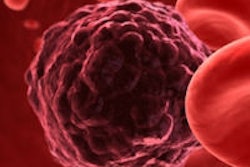Head and neck cancer (HNC) patients receiving radiation as part of their treatment are less likely to suffer unwanted side effects when they comply with a set of prescribed swallowing exercises, according to a new study in Otolaryngology -- Head and Neck Surgery (August 27, 2013).
The five-year study, conducted at the University of California, Los Angeles (UCLA) Jonsson Comprehensive Cancer Center, was designed to evaluate the swallow preservation protocol (SPP), in which patients underwent swallow therapy before, during, and after radiation treatment.
The effectiveness of the SPP was measured by patients' continued ability to swallow and how that affected their diets, whether they needed a feeding tube, or whether they developed narrowing of the throat (stenosis), compared with a group of patients who were not compliant with the SPP.
The researchers assessed the study participants' swallowing ability two weeks before their treatment and offered education about their cancer, what side effects they could expect, and an introduction to the swallowing exercise program. The exercises were designed to maintain the range of motion of mouth and neck muscles involved in swallowing and to counter the formation of excess tissue caused by the radiation, which contributes to loss of swallowing ability. The patients self-reported compliance to the SPP at weekly visits to UCLA.
Among 85 participants from 2007 to 2012, 57 were deemed compliant with the SPP and 28 were noncompliant. The patients ranged in age from 22 to 91 years, and there were more males (66) than females (19). Swallow preservation exercises before and during radiation treatment appeared to maintain a patient's ability to swallow. Patients who were compliant with the SPP had a faster return to normal diet and prevented throat stenosis, according to the study authors.
The results demonstrate that compliance with swallow therapy during radiation or chemoradiation treatment is beneficial to patients' retaining their ability to swallow after treatment is over, the researchers concluded.



















